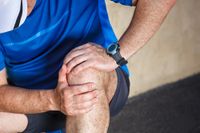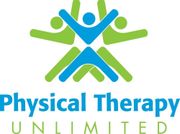
Running and distance walking are some of the most accessible ways to stay in shape. However, either can take a toll on your body. Runner’s knee (also known as patellofemoral syndrome) is a common injury that can leave you in pain and sidelined from many normal daily activities. Even though more common in runners and distance walkers, you actually don’t have to be either to develop this syndrome. If you begin to experience knee pain without any trauma or known aggravating episode, you may want to have the knee examined. Without taking the proper steps, runner’s knee may linger longer than you’d like. Below is a guide that may Help get you back on your feet.
What You Should Know About Runner’s Knee
Causes & Symptoms
 Patellofemoral Syndrome (PFS), it’s a condition where pain develops in and around the knee-cap (patella). It is often accompanied by popping, grinding or clicking sounds when bending and straightening the knee. Other symptoms may also include swelling, tenderness, and feelings of weakness.. These symptoms range in severity from person to person.
Patellofemoral Syndrome (PFS), it’s a condition where pain develops in and around the knee-cap (patella). It is often accompanied by popping, grinding or clicking sounds when bending and straightening the knee. Other symptoms may also include swelling, tenderness, and feelings of weakness.. These symptoms range in severity from person to person.
PFS can develop for several reasons, but it appears to be aggravated by running and distance walking, walking up/down hills or stairs and /or repetitive or prolonged squatting.
PFS or Runner’s knee can commonly result from misalignment of the joints in the feet and lower leg.. Pronated (or flat) feet can result in tibial torsion (rotation of the lower leg bone). When this happens, the patella begins to track abnormally across the knee joint. The patella will then rub against the edge of the groove it should easily glide between. This results in abnormal stress, wearing away of cartilage, inflammation and pain. It can even result tightness of the quadriceps (thigh) muscles and inner hip and even changes in hip alignment.
Runner’s knee (PFS) can develop from over-training and ignoring the gradual onset of symptoms until they becomes a major issue. Running on hard surfaces or up and down hills sends stress upward through your body, impacting your joints. Over time, abnormal impact on the knee joints can lead to inflamed soft tissue and worn cartilage.
Treatment
Runner’s knee / PFS is usually not difficult to diagnose. A doctor will perform an examination and may order some tests. Once diagnosed, it’s important to implement the R.I.C.E. (rest, ice, compress, elevate) treatment routine. Maintain this routine until the acute phase is resolved. Avoid any activity likely to stress the knee. Ice your knee in 15-20 minute on/off intervals. Using a compression wrap is rarely necessary. Elevating your leg will reduce swelling and discomfort.
Consult a physical therapist and have him/her evaluate your lower leg alignment, gait, joint mobility and muscle strength.
Surgery is rare and only needed if cartilage has worn down so much it has caused damage to the kneecap.
Prevention
Finding the root of the cause is one of the most important things you can do. Then taking action to correct it and resolve the resulting changes in your patellar tracking. Loosening tight muscles and strengthening weak muscles is imperative. If necessary have a therapist, podiatrist or other expert recommend the correct orthotics (insoles) to correct foot/ankle alignment. You may have to stretch your thigh (quadriceps) and hip muscles.
Once you are back to running/walking stretch as part of your warm-up routine. Make sure to invest in a quality pair of running/walking shoes that are snug and absorb shock well.
Whenever possible, run/walk on soft, flat surfaces to reduce stress on your knees, and always stop to rest if you experience pain or discomfort.
If you require injury rehabilitation services for runner’s knee or another condition, contact Physical Therapy Unlimited. This Canyon Lake, TX, practice has been providing comprehensive physical rehabilitation services since 1984. Whether you are suffering from back or neck pain, arthritis, or sports injuries, their staff will create a custom injury rehabilitation program to help you get healthy. Call (830) 907-2145 to schedule a consultation and connect on Facebook for more health tips.
About the Business
Have a question? Ask the experts!
Send your question

